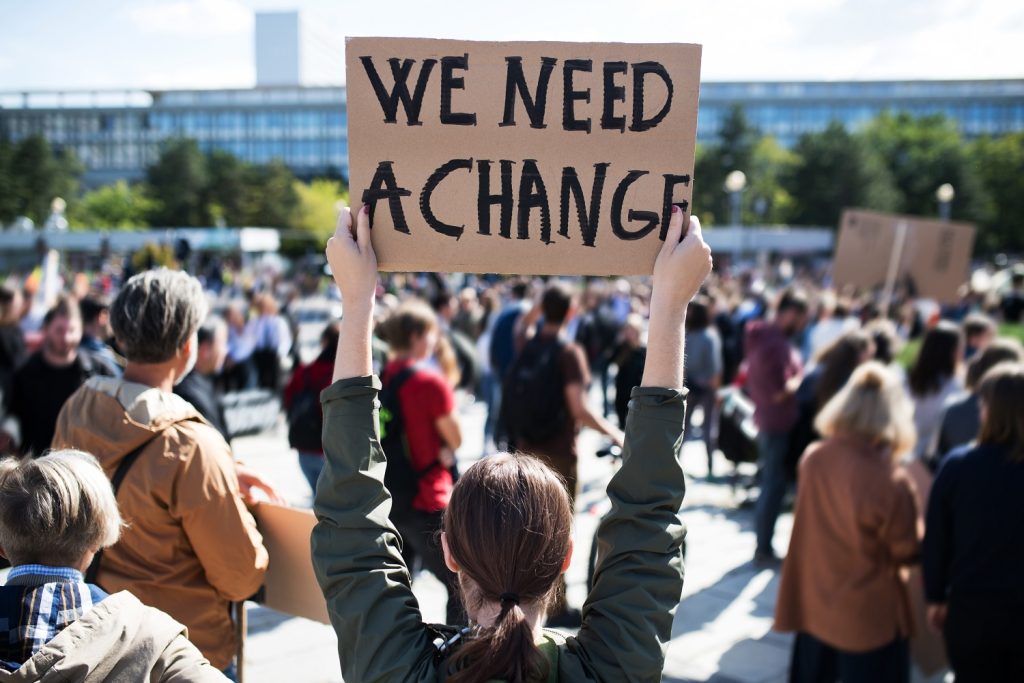Adult education is about more than learning, argues António Nóvoa, former Permanent Representative of Portugal to UNESCO. International Women’s Day is a reminder that it is also key to delivering on our commitments to human rights.

We live in a strange time. Every day we reaffirm our commitment to human rights, and every day we deny them. And we seem unable to understand the importance of considering new rights, especially in relation to the planet and access to the digital sphere.
We live in a strange world. Every day we reaffirm the importance of gender equality, and every day we deny it, through gestures, words and silences. And we seem incapable of understanding that, today, equality rhymes with diversity; it implies ensuring freedom of identity and gender orientation.
In the face of this strangeness, the Nobel Prize-winning Portuguese author José Saramago’s speech at the Nobel Banquet on 10 December 1998 – the fiftieth anniversary of the Universal Declaration of Human Rights – comes to mind:
Let us think that no human rights will exist without symmetry of the duties that correspond to them. It is not to be expected that governments in the next 50 years will do it. Let us common citizens therefore speak up. With the same vehemence as when we demanded our rights, let us demand responsibility over our duties. Perhaps the world could turn a little better.[1]
What is adult education for? To fulfil, individually and collectively, our obligations towards human rights. An instrumental vision of adult education, patently typified in the concept of ‘lifelong learning’, is a good start, but we need a broader vision, inspired by the best transformative traditions of adult education, marked by emancipation and social justice.
Adult education is usually understood in terms of strengthening learners’ autonomy and freedom, certainly on a personal level, but it is also one of the ways in which we develop our relationship with work and become active as citizens. And there is no possibility of promoting social justice without special attention being paid to the rights of women and gender equality. It is one of our main obligations towards human rights.
At the collective level, for shared action it is necessary to understand the role of adult education. It must be thought of and practised as a public project and defended as a global common good. And that is why we cannot remain indifferent to the daily attacks that reduce the participation rights of women in many regions of the world.
A transformative and emancipatory vision has to reach far beyond the lifelong learning ideology that took over the field of adult education. As early as 1999, in his book Powers of Freedom: Reframing Political Thought, Nikolas Rose warned of the consequences of this ideology:
The new citizen is required to engage in a ceaseless work of training and retraining, skilling and reskilling, enhancement of credentials and preparation for a life of incessant job seeking: life is to become a continuous economic capitalization of the self.
Today, adult education needs to be rethought with boldness and audacity. Why? There are five main reasons:
Intergenerational. Because we are living a silent demographic revolution, with an expected increase over the next few decades in life expectancy to 100 years and over, which changes everything in the way adults’ lives are organized and in the intergenerational dynamics of education and adult education.
Interdependency. Because we are experiencing a brutal crisis due to climate change. We need to understand that our lives are interdependent, not just with each other but also with the planet. Adult education must contribute to a new humanism that encompasses more than what is human.
Interconnection. Because we are facing a different world, largely thanks to digitalization, which changes the processes of interconnection and forces us also to think about adult education from the new right of digital access as a necessary condition for social participation.
Intermittency. Because work is changing, profoundly, and adult education cannot be thought of only from the perspective of recycling (a horrible word) but of a new relationship with work, especially in the face of automation processes, thereby building new intermittencies between spaces and times of work and leisure.
Intercultural. Because migrations and mobilities are profoundly transforming our societies – thankfully, from an intercultural perspective – and adult education must contribute to reinforcing new identities and cross-cultures.
In other words, we are facing deep transformation processes, and adult education needs to be rethought and reimagined, freeing it from narrowly conceived notions of lifelong learning. A reductive and limited view of adult education is no longer enough for us. We need open, bold and creative thinking. Let us talk about ‘education’, and not only about ‘learning’. Let us talk about ‘adult education’, and not only about ‘lifelong learning’, never forgetting the inclusion of adult education in the life cycle as a whole.
We need a new generation of thinking about adult education that draws its inspiration from the roots of emancipation and social justice, to promote ideas and practices that allow us to face the great challenges of our time.
Among them, gender equality is one of the most important and decisive, as there will be no social justice without strengthening the participation of women on all levels, and without everyone having the right to preserve their gender identities and orientations.
The world is facing societal challenges of an unknown dimension in terms of globalization, health, climate change, threats to peace and the fight against inequalities. We need, more than ever, an adult education committed to fulfilling its obligations towards human rights.
António Sampaio da
Nóvoa holds a PhD in Educational Sciences from the University of Geneva
and a PhD in Modern and Contemporary History from the University of Paris
IV-Sorbonne. From 2018-2022, he served as Permanent
Representative of Portugal to UNESCO.
[1] Saramago, J. 1998. Banquet speech. Stockholm, Nobel Prize Outreach AB 2022. [online] Available at: https://www.nobelprize.org/prizes/literature/1998/saramago/speech/ [Accessed 2 March 2022].
